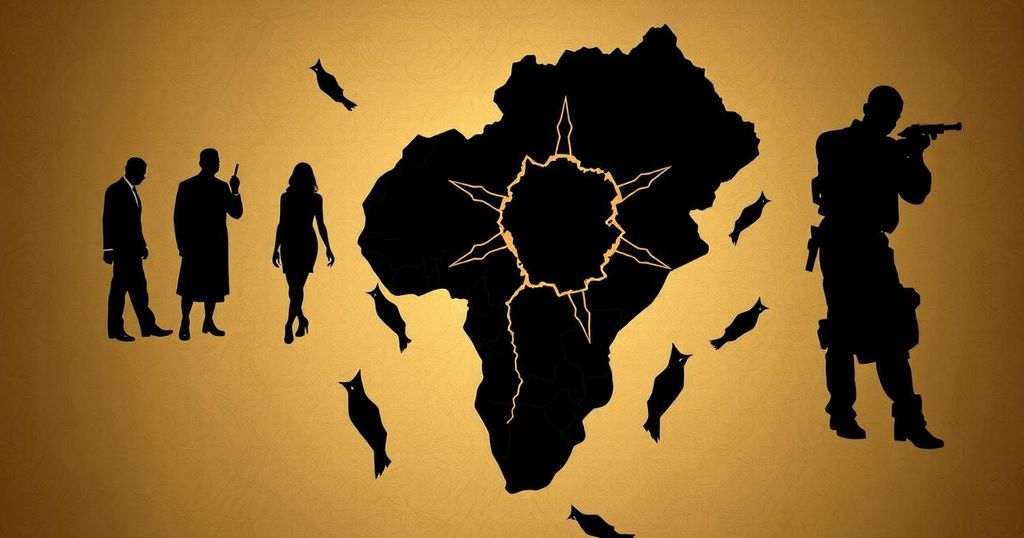Egypt has rejected attempts to form a rival government in Sudan, deeming it a threat to the country’s stability and integrity. The ongoing conflict between Sudan’s army and the paramilitary RSF has led to significant humanitarian crises. International support for Sudan’s unity has been reiterated by multiple nations in response to the RSF’s actions.
On Sunday, Egypt firmly rejected efforts to establish a rival government in Sudan, emphasizing that such attempts threaten the “unity, sovereignty and territorial integrity” of the struggling nation. The ongoing conflict, primarily between the regular army and the paramilitary Rapid Support Forces (RSF), has persisted for nearly two years, resulting in a humanitarian crisis that the United Nations has deemed among the worst in recent history.
Last week, the RSF and its allies signed a charter in Kenya proclaiming the creation of a “government of peace and unity” in their controlled territories. In response, Egypt’s foreign ministry stated, “Egypt expresses its rejection of any attempts that threaten the unity, sovereignty and territorial integrity of brotherly Sudan,” thus underscoring their stance against any move to form a parallel government.
Moreover, Cairo warned that these developments complicate the situation in Sudan, hinder existing efforts to unify political consensus, and exacerbate an already dire humanitarian crisis. Egypt urged all Sudanese factions to prioritize the national interest and actively participate in a comprehensive political dialogue free of exclusions or external influences.
Egyptian Foreign Minister Badr Abdelatty reiterated this position during a press conference with Sudanese counterpart Ali Youssef, declaring, “Sudan’s territorial integrity is a red line for Egypt.” He stressed Egypt’s refusal to support any calls proposing the establishment of alternative governance structures independent of the recognized governmental framework.
The RSF’s initiative to form a competing government has attracted widespread condemnation. This includes remarks from United Nations Secretary-General António Guterres, who cautioned that such actions would further fragment Sudan. Saudi Arabia, previously involved in ceasefire negotiations, also denounced the RSF’s actions, warning against illegal measures outside recognized governmental channels.
Kuwait and Qatar echoed similar sentiments, with both nations rejecting actions outside of legitimate state institutions, as they represent a threat to Sudan’s territorial unity. The United Arab Emirates, amidst allegations of supplying the RSF with arms, has yet to issue any public statement on the matter.
In conclusion, Egypt’s rejection of the RSF’s attempts to establish a separate government in Sudan highlights the ongoing challenges the nation faces amid a devastating civil conflict. Egypt’s firm stance underscores its commitment to Sudan’s sovereignty and unity, while also serving as a call for all parties to engage in constructive political dialogue. The international community, including regional powers, continues to express concerns regarding the situation, emphasizing the need for stability and legitimate governance.
Original Source: www.hindustantimes.com




